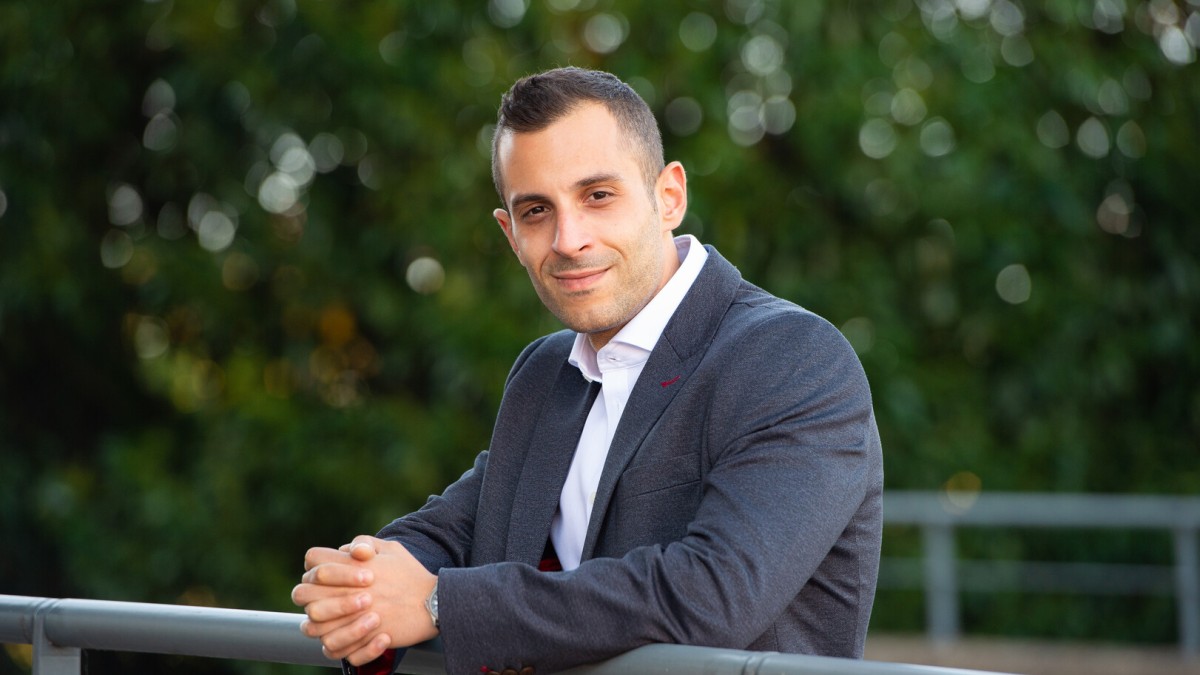The EU as hesitant power
Dr Nikolaos Gkotsis-Papaioannou, Senior Lecturer in International Politics, was interviewed with EURadio about the EU as hesitant power. You can read below for a transcript of the interiew.

For our weekly ‘Ideas on Europe’ editorial by UACES, the University Association for European Studies, we have the pleasure to welcome Nikolaos Gkotsis-Papaioannou, from the University of Surrey, in Britain. Bonjour, Nikos!
In your research, you address an ongoing question with an uncertain answer: to what extent is the EU able to progress as a normative global actor?
The word that describes it best is ‘indecision’. Even when the arena of conflict is within its own back yard – as is the case of Ukraine – the Union puts forward what is called ‘normative actorness’, a commitment to non-coercive measures at all costs, even when that cost can ultimately be its own credibility as an international preserver of security and stability.
What’s wrong with that?
Good question. The EU performs a balancing act: in its wish to play a prominent role in managing international order, aspirations for a more robust EU defence union have been expressed on multiple occasions, most recently with the Strategic Compass in 2022. But the question remains: how can the EU effectively guarantee this order without the necessary military capabilities as last resort?
To that end, the EU has brought forth smaller, more adaptable military initiatives such as the EU Battlegroups and Rapid Deployment Capacity (EU RDC), which my colleague Laura Chappell explained in detail some weeks ago. The EU has turned towards a hybrid normatively-laden global actorness.
Can you explain in more detail what is meant by ‘hybrid’ in this context?
‘Hybrid actorness’ means bridging a civilian identity with the use of military means.
On the one hand, the EU’s purported engagement in international concerns remains quite vague, both in terms of means that are employed to resolve these issues and concerning its long-term plans about them. The EU has increasingly resorted to normative commitments, such as multilateralism and strategic partnerships, which have become embedded within its own identity.
While not progressing as a military actor, relying on co-operation with NATO, the EU continues to construct long-term plans – ‘strategic plans’ as it calls them – to demonstrate its ability to address the challenges it faces. But the civilian nature of the EU is still obvious, while the means to showcase it lack coherence, both internally and externally.
On the other hand, military intervention is perceived as necessary to ensure stability in the operational arena and allow the civilian components to function. Within a violent environment, a civilian mission (or any other non-coercive intervention) is doomed without the support of a professional military force. It is thus understandable that the two types of intervention, military and civilian, have to be complementary in the way they operate together in practice, to maintain their short-term effect and yield a long-term effect, too.
I feel you are very sceptical about the EU’s capacity to combine both.
The EU has increased the value of its norms, highlighting them in its external action. It uses a framework of generally accepted values, also referring to international legal regimes or systems such as the UN, which are widely acknowledged.
With reference to the symbolic element of military power within its initiatives, the EU has above all capitalised on the recognition as a normative power, by focusing on it on a strategic, institutional as well as operational level.
Although remaining committed to its promotion of effective multilateralism, the Union has also focused on the construction of autonomy in its most recent strategic documents (initially in the EU Global Strategy and now in the Strategic Compass).
Can you illustrate this with a concrete example?
Let’s take the EU’s military engagement in Africa, especially the case of Somalia. The mandates that were put forth called on the African Mission in Somalia (AMISOM) to effectively carry out the EU’s demonstrated security-oriented actions in the region. Using a partnership-ownership narrative within the Joint Africa EU Strategies (JAES), the EU employed its own military means and allocated civilian tasks to them based on normative grounds. This is a good illustration of the complicated link between the intents and the actions of the EU, which helps understand the concerns that have been raised around the overall actorness of the EU.
If securitisation continues to be the core concern in international crises, the EU needs to seriously reconsider its identity as a global actor, particularly in its Common Security and Defence Policy (CSDP).
Thank you very much for sharing your concerns with us. I recall that you are lecturer in international politics at the University of Surrey, in Britain.”
***
You can listen to the interview here.
